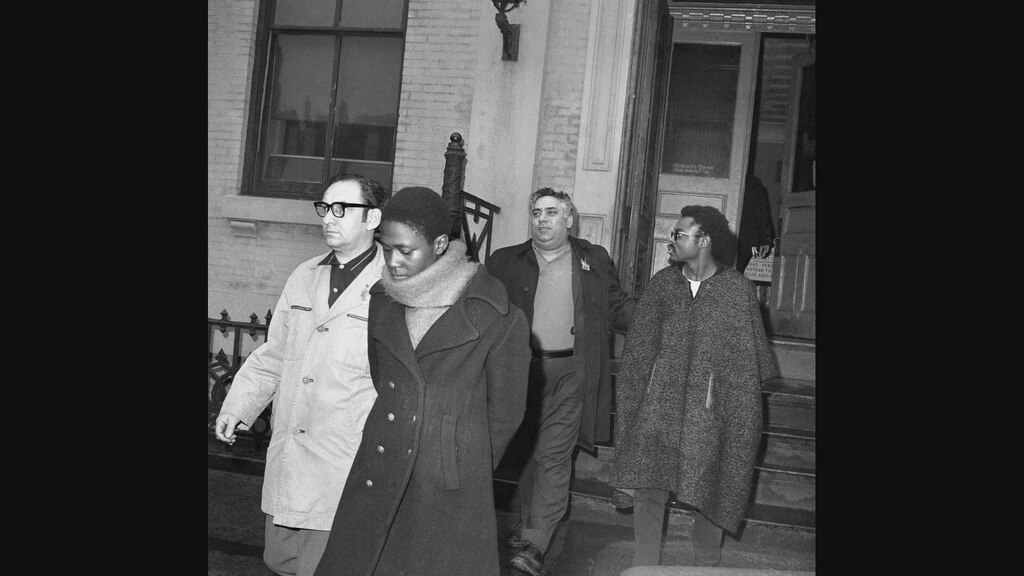How do you tell a story that’s been told millions of ways? When does constant extraction leave the well dry? What new angles of that repeated story can still be useful? Those are the hurdles facing FX’s new docuseries “Dear Mama,” which chronicles the late artist and cultural titan Tupac Shakur in the context of his relationship with his mother, Afeni.
For those familiar with Pac’s music, the connection to his mom was one of his more redeeming traits — something that added dimension to a character who’s mostly associated with the hard exterior he made the focus of his message during the height of his pop stardom. The track “Dear Mama,” released in 1995, peeled back the layers of Afeni and Tupac’s story. In the song, Pac creates an empathetic framing of his mother’s full humanity, emphasizing that her struggles with drug addiction made her no less of an honorable woman, especially considering that his father was absent.
During a time when film depictions of those affected by the crack epidemic often presented single Black mothers as raging fiends with no capacity to take care of their fatherless, delinquent children, “Dear Mama” was a maternal celebration for the hip-hop generation.
The FX series, which premiered the first two of its five episodes on Friday, takes you into the interior of that sonic love letter.
The Baltimore Banner thanks its sponsors. Become one.
Episode 1 opens with a fairly well-known interview of 17-year-old Pac as a senior at Tamalpais High School in the Bay Area in which he talks about what it feels like to be a teenager, the realities of being poor and his mother’s history in the Black Panther Party. From there, the series launches into Afeni’s history; her family relocated to Harlem from North Carolina during her childhood and she became politically active in the Panther movement in her 20s. Relatives and friends interviewed for the series underline these details as crucial because Afeni’s activism informed how she raised Pac from a young age to be aware of the society he lived in, speak out when feeling wronged, and never be disillusioned by reality — even the reality of their own financial struggles. Due to this being placed on his young shoulders, Pac sought refuge in street activity.
At the same time Tupac was finding his footing within hip-hop’s rising class, he was also being positioned as a leader of The New Afrikan Black Panther Party, so the start of his career ran parallel to him becoming a leading voice in the struggle for liberation. Episode 2 dives into him becoming that well-rounded figure in the mainstream, with appearances on popular daytime talk shows and songs like “Brenda’s Got a Baby,” which tells the sad tale of a pregnant preteen and the devastating effects on her life and community.

Soon, though, Tupac was starting to be viewed as a symbol of a menacing group of angry young Black men who were prepared to engage in violence with police. The series starts to go through Afeni’s own problems with cops in the ’60s and ’70s as a Panther — in 1969, she and 20 other Black Panthers were arrested and charged with conspiracy to bomb police stations, among other public places — and runs them parallel with her son’s legal struggles two decades later on charges ranging from weapons possession to sexual assault.
This is essentially the rhythm of “Dear Mama”: holding up a split screen between a child and parent, showing how the adults we become are largely informed by the choices of our guardians. It isn’t the most exciting watch, considering that the bulk of this information has been shown in one way or another in the 27 years since Tupac Shakur’s death in 1996. And unfortunately for Baltimoreans, his time living here as a teenager is only glossed over. Still, “Dear Mama” is a solid watch if you’re interested in getting more intimate accounts of one of the more polarizing and impactful artists of the past century.



Comments
Welcome to The Banner's subscriber-only commenting community. Please review our community guidelines.